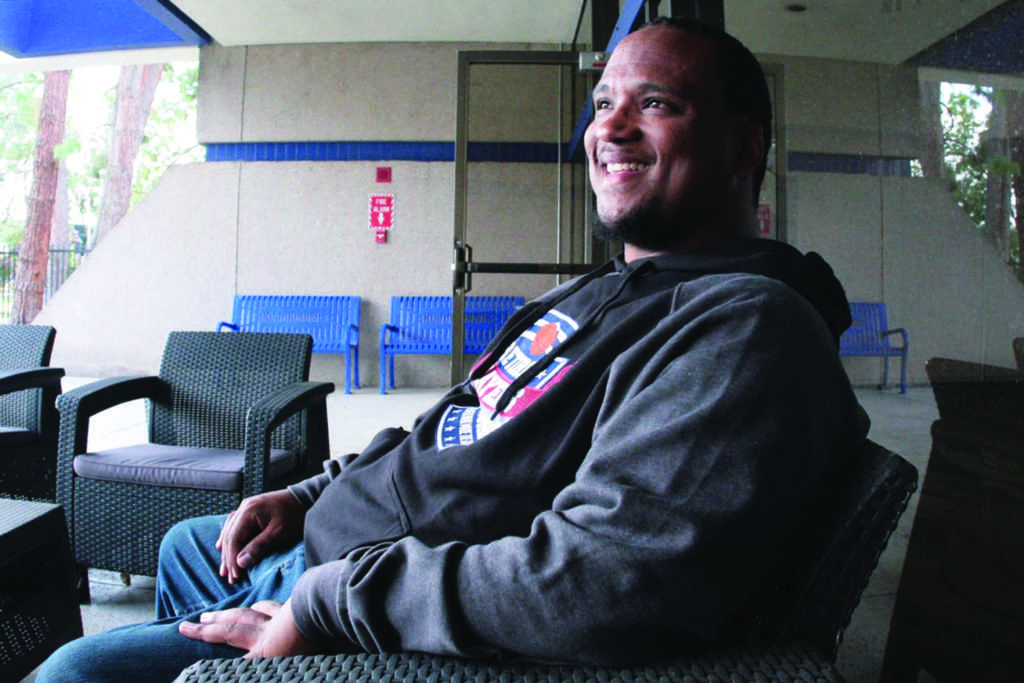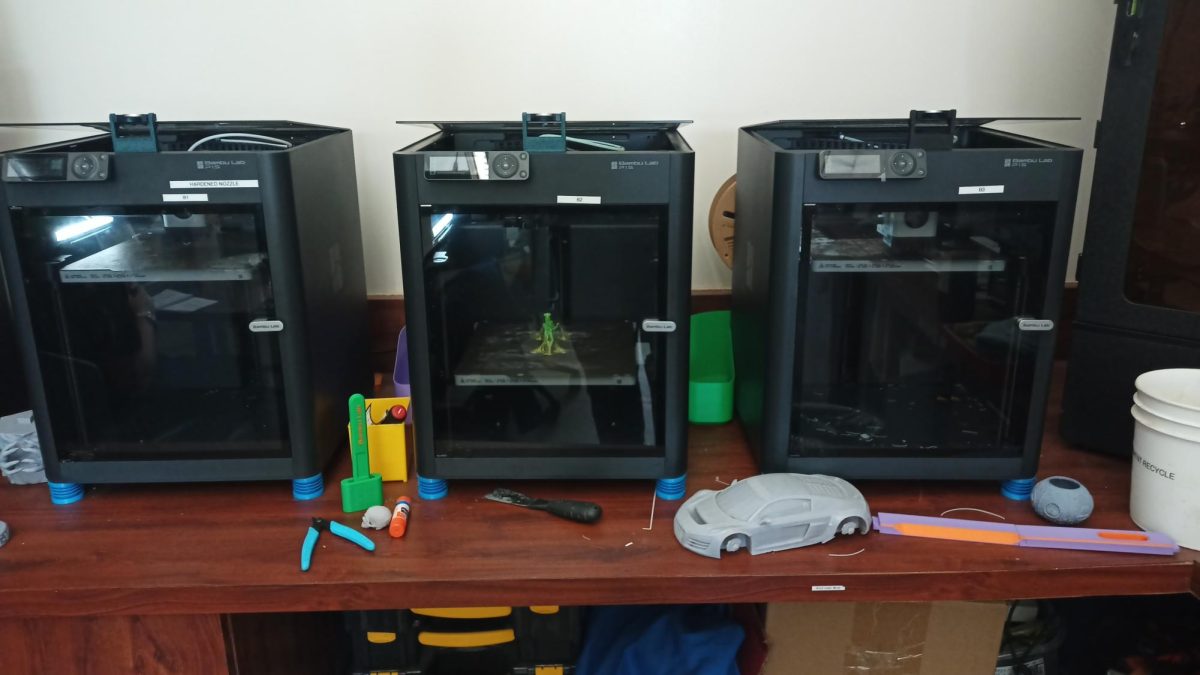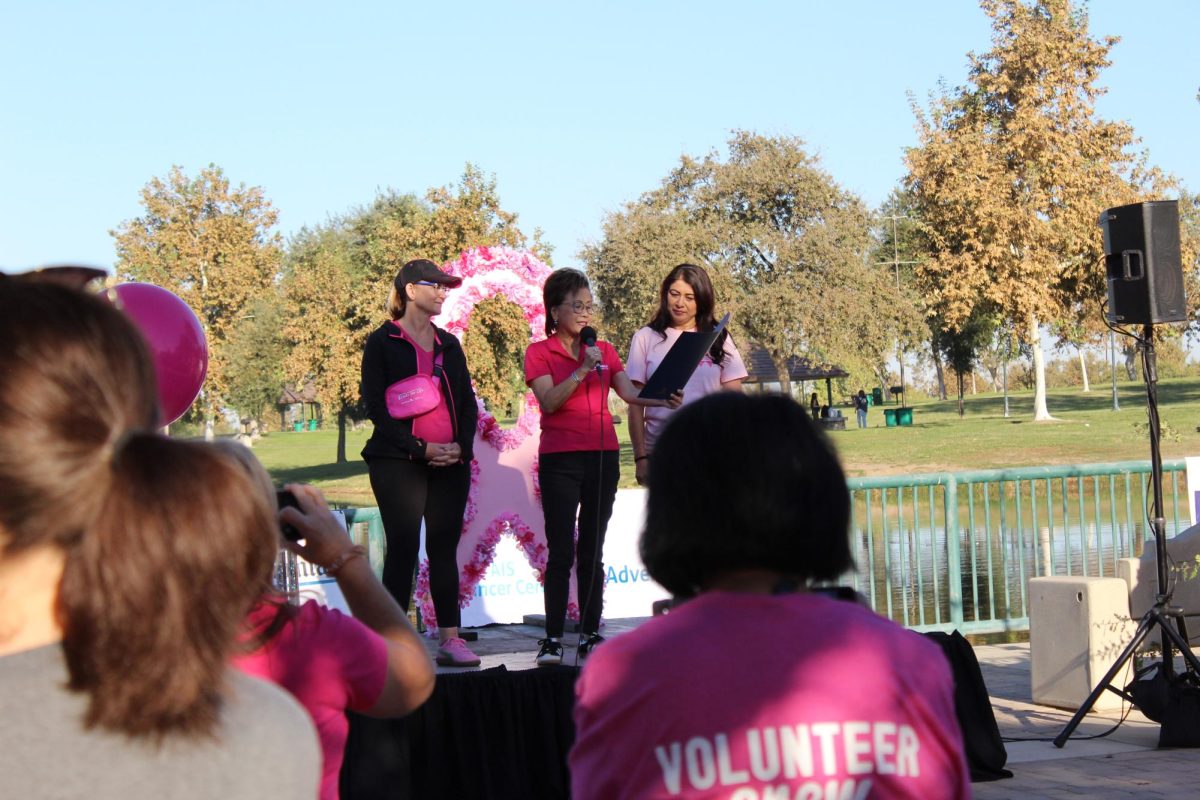Features Editor
“They kept assuring me that, every night that I was gonna get these things when we were done. And then I was at my house and I just collapsed, and my disk, my L2L3, was shattered.” Six years after his hospitalization, Brent McClanahan II, a CSU Bakersfield graduate, is finally sharing how he recovered when his Greek Life dream became a nightmare.
“After everything happened and I was injured, it was kind of like I had to start my life all over again,” said McClanahan.
According to McClanahan, the District Attorney, alongside Bakersfield Police Department, filed a criminal lawsuit immediately in 2011 and named students: Deandrea Horn, Ryan Nichols, and Philemon Lamont Norris. Ryan and Nichols pleaded no contest to misdemeanor charges of hazing and Horn pleaded no contest to misdemeanor charges of battery and received three years’ probation and time served.
McClanahan was 24 years old, and a single father of two, when he moved back in with his parents and started school at CSUB in 2010. He decided to pledge Kappa Alpha Psi in March of 2011, a fraternity his father had been a member of. Kappa Alpha Psi was unsanctioned at the time and McClanahan, along with other pledges, were hoping to create enough membership to reestablish the chapter.
“The reason why I joined and wanted to be a part of the fraternity was because my father was a Kappa and I’m a Kappa, and it was my childhood dream to always be a Kappa,” said McClanahan.
McClanahan stated that at the time of his pledging process, there were already multiple fraternities and sororities that were sanctioned by the university. Kappa Alpha Psi was just one of a few black fraternities that was trying to gain momentum at the time.
“There were many crazy things happening in my life and it just got to the point where I just needed to belong to something,” said McClanahan.
When the pledges were offered the opportunity to pledge Kappa Alpha Psi, McClanahan felt at the time that if they did not “want to be real” then the other brothers of the fraternity would not respect them as a fellow Kappa.
“So in order for you to get respect, you have to be hazed…I mean from getting hit with whips, canes, paddles,” said McClanahan.
In April 2011, McClanahan, 25 at the time, returned to his parents’ home where he collapsed and was hospitalized after an initiation evening with the fraternity. He sustained herniated and ruptured discs which left him paralyzed from the waist down. He has undergone rehabilitation for his legs and has regained use of them over time. He said he still experiences drop leg, bladder control issues, and may not be able to father any more children.
McClanahan said that his beatings not only left him with severe physical injuries and costly medical bills, but psychological trauma as well. He said he has suffered from depression, night terrors, and PTSD due to his experience.
When McClanahan was in the hospital his fraternity big brother, and fellow pledges, visited to ask him if he was still interested in continuing the initiation process. His response was, “Look at me. I’m in the hospital.’ and that’s when it just clicked like, ‘what the hell am I doing here?”
According to McClanahan, the medical expenses and psychological damages became so burdensome that he reached out to the California Victim Compensation Board to help him. However, the board rejected his application stating he did not qualify as a victim because he “kept going back to be hazed,” he said.
“So I said to them, ‘Let me ask you a question. Do you say the same thing to a woman who is in a domestic violence abuse but keeps going back to her husband that keeps beating her?’…They didn’t answer my question,” said McClanahan.
After McClanahan was denied financial assistance by the state he decided to file a lawsuit against the fraternity to help cover his medical expenses.
McClanahan began discussion about filing a lawsuit against Kappa Alpha Psi in 2012.
According to him, the next year was spent discussing how to file the suit. In 2013, McClanahan filed a civil lawsuit against Kappa Alpha Psi Inc. in Los Angeles County Superior Court. During the lawsuit, allegations arose against McClanahan’s father being aware of his son’s beatings and injuries before the night his son was hospitalized. McClanahan rebukes these allegations saying that his father “was heartbroken when he found out” about the hazing that had ensued.
In August of 2014, McClanahan said the yearlong litigation resulted in a settlement. He received $2 million from the fraternities’ insurance. He has used it to settle his medical expenses, including his back surgery that had cost $250,000.
McClanahan has also decided to use his experience to benefit others. He continued his education and graduated from CSUB with a degree in history. He said he is unsure of what he plans to do, but he would like to work in a field where he can continue to share what he has learned from his experience. He considers teaching or even continuing his education, getting a master’s degree, and becoming a college professor.
“I really feel like that’s another big issue too, is we don’t have enough adults telling these students what to look out for,” said McClanahan.
At the end of 2013, McClanahan was introduced to film director Byron Hurt who has directed documentaries such as: “If Five-O Shoots,” “I Am a Man: Black Masculinity in America,” and just finished “Hazing: How Badly do you Want in?” which will feature McClanahan and his story. The film is expected to be released at the end of 2017 and will feature scenes at CSUB with McClanahan.
“It’s like I’m trying to figure out the social psychology of how one becomes a part of a group and like why, as a society, we have the people who want to be a part of a group,” said McClanahan.
McClanahan said he was grateful for the work he did with Hurt on the film. He feels that being a part of that film helped him to process his anger and depression at the time. He is grateful for the manner in which CSUB President Horace Mitchell responded to the case. He said that the physical abuse they endured never occured on campus and he has never felt that CSUB was at fault for his ordeal.
McClanahan continues to advocate for victims rights and safety. He feels he is just “an ordinary guy trying to make a difference.” He hopes to understand more the psychology of needing to belong, even if it means enduring beatings.
“We need to have a dialect with administration and students.”
McClanahan offered his solution, “And they need to come together and have these conversations. And I feel like us doing this hazing thing is a start.”

Photo by Veronica Morley/The Runner







